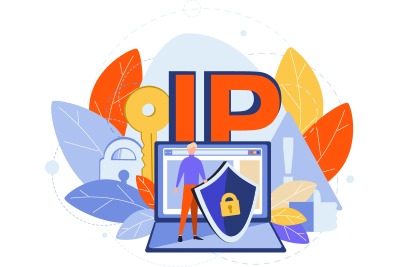One API Integration, Three Powerful Modules
Aggregate alternative user data from an email address, phone number or IP address and build complete 360 customer profiles in real-time.
Choose the modules that make the most sense for your use case and leverage risk scores to automate your processes, reduce manual review time, and avoid unnecessary ID verification costs.
Email Module
A basic field your users must fill. And yet, a simple reverse email address lookup will reveal fascinating insights about who they are:

Reverse Social Media Lookup Find if the address is linked to 20+ social media platforms Get a user profile picture and bio See when they last appeared online
Domain Analysis Is it from a disposable or temporary email domain? Does it require SMS verification? Is it a free or high-risk provider? How old is the domain? How often is it updated?
Full Address Profiling See when the address was created? Does it match their name? Can we confirm on a whois database?
Data breach check Find the email address on known leaks
Phone Module Using phone numbers for authentication? Make sure you aren’t dealing with SIM-swapped accounts or virtual numbers.
Messenger Use Find if the number is linked to messaging apps like Viber, Whatsapp... Get a user profile picture and bio See when they last appeared online
Carrier Analysis Detect the origin country Learn the number type (landline, mobile) See who the carrier is Highlight virtual SIMs and eSIM numbers
Validity Check Filter out invalid phone numbers
IP Module

The oldest analysis method remains one of the most reliable, especially when combined with other alternative data for multi-layered enrichment – all available within 200ms.
Detect Risky Connections Spot proxy, VPN and Tor usage Ping open HTTP ports to detect proxy usage
ISP Identification Identify public and private ISPs Increase risk depending on the ISP category
Spam Blacklist Scams
Learn if the IP has been blacklisted for spamming
Risk Scores for Dynamic Friction
Every data enrichment module also provides a risk score, which you can use to automatically accept, reject, or review users on your ID verification platform. Need to request additional info for a manual review?
Only do it when you’re certain to deal with a grey area and create friction as you see fit – based on your risk appetite.
Fight against fraudsters
Live Alternative Data for Credit Scoring The Traps of Unreliable Data in Credit Scoring
Stale or Unavailable Data Most underbanked consumers are found in emerging markets where bureaucratic data may be unavailable or alternative data providers struggle to keep up. Their collected data can turn stale over time, making it unreliable for effective credit underwriting.
Banking Details Are Cheap and Easy to Buy
Those who rely on Open Banking APIs are at risk of a bad surprise: the regulation has created a booming market for banking credentials.
Criminals have no trouble accessing financial information designed to fool risk checks or to access the money via bank drops. A US Wells Fargo bank statement costs as little as $25 on the darknet. A bank account is $100. They are even
more affordable in emerging markets.
Synthetic IDs Are Tailored to Your Checks With the right combination of resources and technical savvy, creating a synthetic ID that passes security checks is child’s play. Fraudsters will forge a user profile with the right credit score, photoshopped ID, and even customised browser history. Fraud becomes invisible to your systems because it’s specifically designed to bypass them.
Incorporating Reverse
Social Media Lookup In Credit Scoring
Social is hugely popular in emerging economies where traditional bureaucratic data may be unreliable. But you can assess the risk of servicing a customer by relying on reverse social media lookups, as legitimate users will have a distinct
digital footprint corresponding to the general use of the given platform in that country - whereas a fraudster is likely to use some sort of a throwaway address or number that may look good, but have no or little associated profiles.
Inversely, a fraudster might dedicate their precious time to creating an email account, but not a full social media profile – especially if they automate attempts with numerous fake profiles.
Which is why, according to our internal data,
360 View for Credit Scoring
Scoreleads is the only data provider that checks more than 20 social media networks, based on an email address and 8 based on a phone number. You can instantly see if the person has a registered social media or social messenger account,
to verify the user:
Using the reverse email lookup tool will help you answer questions such as:
Similarly, a phone number can help you see:
That data becomes crucial when it comes to manual reviews. But you can also leverage risk scores to automate approval or rejection, and to enable dynamic friction
Live Examples
A new user lands on your loan quote page. You ask for as little information as possible, but the bare minimum includes a name, home address and email address.
Given this information, Scoreleads is able to tell that the user is legitimate:
Using this you are not only able to verify the user’s legitimacy before requiring a costly identity verification check but can use this information in your credit scoring process.
Testimonials
We tested Scoreleads’s email analysis tool with our own emails, and the results were incredibly accurate. We’ve had other demos where it all looks good on paper, and the test case doesn’t really deliver. We now use the returned data [from
Scoreleads’s social media profiling] both to confirm identities, and as a debt-collection tool to contact non-paying customers.
We are proud to provide loans to unbanked and underbanked markets, however, it usually means extra vigilance and costly manual reviews (...) Scoreleads is now part of our comprehensive anti-fraud solution, and according to the results of
the implementation, the number of fraud cases has significantly decreased.
Tackling Bonus Abuse with Scoreleads

Tackling Bonus Abuse with Scoreleads While bonus abuse will always be an issue on the level of random individual acts, the harm it causes to your bottom line pales in comparison to organized abuse. Organized fraudsters knowing the ins and outs of risk procedures applied by most Scoreleads operators will go and hunt down promotional offers like it's their day job, and at scale.
They are able to do this because their schemes appear in different silos of an organization - on the promotional side, on the transaction side and on the support side, and in each case operators think that it would be prohibitively expensive to apply the strictest measures against them.
At Scoreleads, we like to think otherwise. With our digital footprint analysis, customer connections, and complex rule systems aided by machine learning, you are able to introduce an invisible, zero friction KYC check on signups, connect multi-accounters based on data that not even the most organized fraudsters can scale.
Moreover, Scoreleads can not only be integrated across anywhere in the platform,but by sending us custom data fields, you can build risk models on user behaviors that are unique not just to your industry, but to your specific business.
First line of defense: invisible KYC By introducing advanced, Light KYC procedures at crucial junctions, you are able to trigger the appropriate decisions at scale without introducing additional friction for legitimate users. User journeys would look as thus:
Light KYC in Scoreleads’s terms means the following: An email that’s used for a variety of services and has been leaked is more legitimate than one that’s not
Automated Blocking vs. Manual reviews
Rules built on variable risk scores which can be based on the behavior and social media footprint of the user can be set to automatically block or manually review a customer. The latter can be useful at the withdrawal stage, as the last
stage of defense where you are able to catch promo abusers based on their connection to one another.
Whether it’s a single bad actor registering multiple accounts or a dedicated ring attacking your platform, by combing through their data used for transactions, logins and at registration and the patterns they use, it’s easy to spot the
ring of accounts and withhold payment for violating the terms of service.
A live example
A promo abuser will likely try their best to get through your first line of defense, and appear as legitimate as possible.
First signup: seems good
But their second transaction can trigger alerts that they wouldn’t think about: such as password reuse or losing against the same player, which is a common form of promo abuse:
Suspicious behavior can be set to raise risk scores, automatically blocking a transaction
Rules can be defined flexibly and given an easily recognizable name to aid other analysts